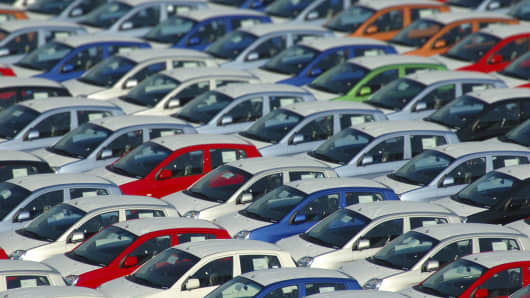Car sales for June in the European Union fell to their lowest point since 1996, prompting analysts to warn the data could get worse before it gets better.
New car registrations in the EU dropped 5.6 percent in June to 1.175 million cars from a year ago, after falling 5.9 percent in May, according to figures released by the automotive industry body ACEA on Tuesday. May's level was the lowest level for 20 years.
Carlos Da Silva, manager for European vehicle sales forecasts at IHS Global Insight, told CNBC that though car registrations were "at the bottom of the bottom" there would not be an improvement in the figures until next year.
"Maybe in the first half of 2014 we'll see a real restart but it will be a very staggered recovery in Western Europe," Da Silva told CNBC on Tuesday.
Peter Fuss, senior advisory partner of Ernst and Young's Global Automotive Centre told CNBC that car sales could slow further. "We anticipate the decline in car sales to slow down during the second half and the Western European market to dip by 4 to 6 percent for the whole year. Further, growth in car sales is likely to be flat during 2014. With replacement demand building up, the market is expected to assume growth path from 2015 onward," he told CNBC.
In the first half of 2013, 6.2 million new cars were registered in the EU – 6.6 percent less than in the same period in 2012. The U.K. was the only market to expand (by 10 percent) while all other major markets faced a downturn.
(Read More: Why The UK's Auto Industry Remains Crisis Free)
In Germany, the market contracted by 8.1 percent, in France by 11.2 percent and in Spain, by 4.9 percent. The decline comes after European car sales experienced an optimistic bounce in April before falling to a two decade low the following month.
Shares of Fiat, Peugeot Citroen, VW Group and General Motors, which all experienced sales declines in June, traded lower on Tuesday.



